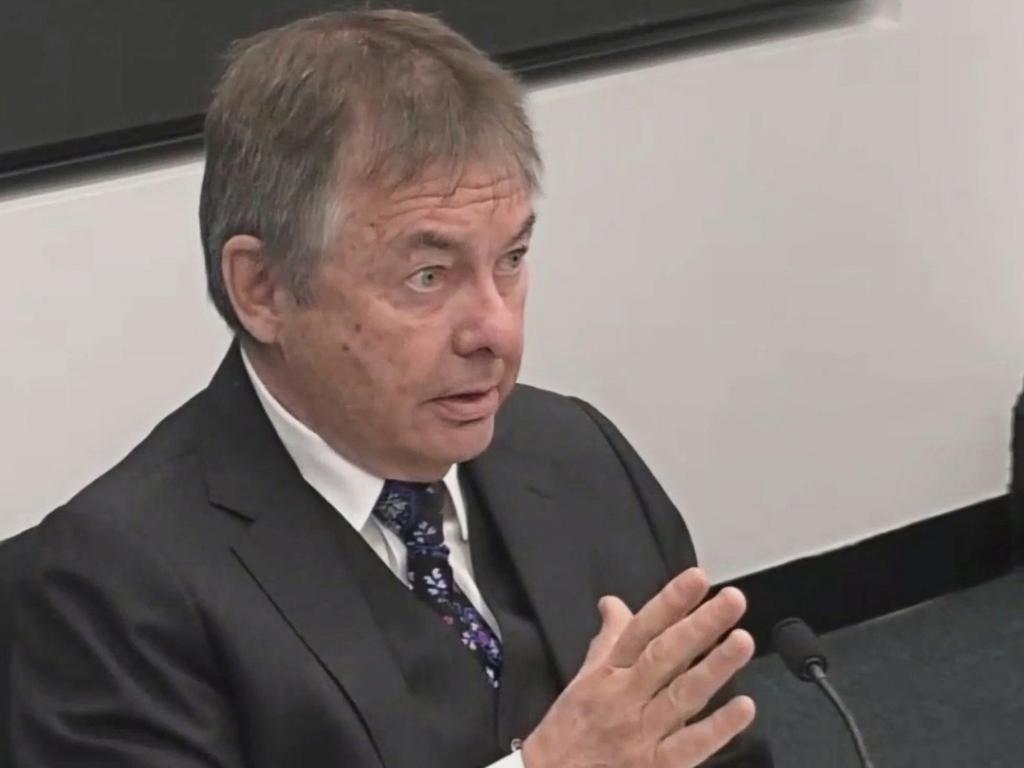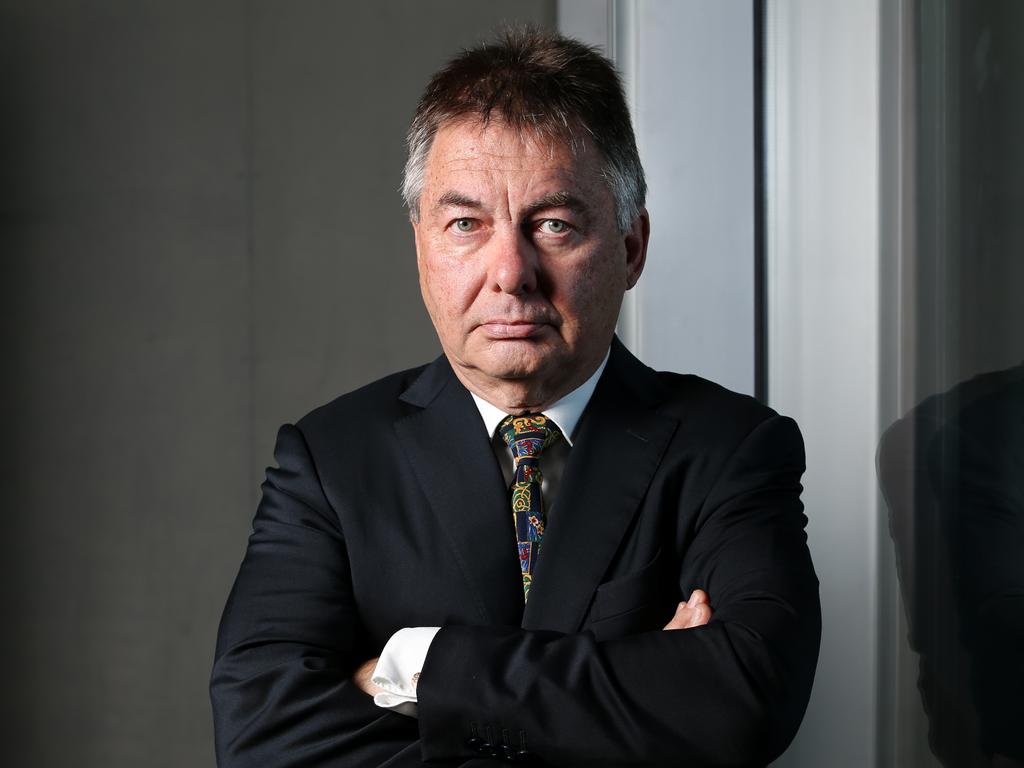Parallels between Bruce Lehrmann and Zachary Rolfe cases are unmistakable and disturbing


In both cases, a hasty investigation and charging of a young man for a serious crime was accompanied by diarised police concerns about lack of evidence.
In both cases, the politicisation of events by politicians and other senior figures occurred against a backdrop of social movements fuelling a febrile environment.
In both cases, a pattern of non-disclosure of material to defence lawyers put at risk their ability to properly defend their clients.
The difference is that the public has now had the benefit of a thorough public inquiry into the exercise of state power in the Lehrmann matter.
If we are to trust in all aspects of the criminal justice system, from policing to prosecutors, the issues raised by Rolfe’s lawyers and reported by The Australian’s Kristin Shorten today must be investigated. An internal police investigation is not enough.

There should be a transparent and meticulous public inquiry by a skilled and fearless senior judge into the circumstances surrounding the investigation and prosecution of Rolfe.
That the former constable was unanimously found not guilty by 12 jurors within a few hours is not a reason for institutions that wield tremendous power against a citizen to avoid a public inquiry into their behaviour.
The Northern Territory’s new Police Commissioner, Michael Murphy, has an opportunity to start his term in office by encouraging proper and overdue public scrutiny of the most controversial police investigation in the Territory’s history.
In his letter to Murphy on June 16 this year, Rolfe’s lawyer, Luke Officer, laid out serious concerns about the conduct of Detective Senior Sergeant Wayne Newell. They included claims that Newell amended and edited an expert report, that he obtained opinions from a purported expert denying the lethality of the scissors that Walker used to stab Rolfe and threaten his partner, even though that expert said it would be inappropriate for her to give evidence, and that Newell withheld supplementary opinions given by two other experts to him about the lethality of the scissors that would have assisted defence but were revealed only during the trial.
The Darwin-based lawyer in his letter says it was only down to “sheer luck” that he became aware of the undisclosed material.
Again, by sheer chance, Rolfe’s lawyers became aware of a series of draft police coronial reports – known as the “Pollock reports” – that police had not given to the DPP, and could therefore not share with Rolfe’s defence team.
When making his order for disclosure of those reports, Supreme Court judge Dean Mildren said: “If the documents are never revealed, it may be that an innocent person has been wrongly convicted. It is to be hoped that this situation will not occur in the future.”
In his final report into the investigation and prosecution of Lehrmann, Walter Sofronoff explained why full disclosure was central to our trust in the criminal justice system by ensuring a fair trial, and addressing the imbalance of power and resources between the state and a citizen. “Criminal litigation is not a poker game in which a prosecutor can hide the cards,” he wrote.
In the Lehrmann case, the former DPP was exposed as failing to disclose material.
In the Rolfe matter, disclosure failures concern police.
Disclosure duties are the same for police and prosecutors because both are instruments of enormous state power, just as the damage to a defendant, and our trust in the criminal justice system, is the same whether non-disclosure is by a prosecutor or by police.
Many other parts of the Rolfe saga echo the Lehrmann case. For example, police diary entries reveal senior police officers expressed concerns at charging Rolfe before sufficient evidence had been amassed.

Just as the Lehrmann saga unfolded against the background of the #metoo movement and nationwide March 4 Justice protests, the arrest, prosecution and trial of Rolfe occurred as the Black Lives Matters movement grew in prominence, alongside “Justice for Walker” protests nationwide.
More concerning than the wild west of social media, which became hunting grounds for Lehrmann and Rolfe, leaders behaved badly. On November 12, three days after the fatal shooting, then-commissioner Jamie Chalker and chief minister Michael Gunner travelled to Yuendumu, where the latter told the community there would be an independent investigation into the shooting and “consequences will flow as a result.”
Recall that former prime minister Scott Morrison delivered an apology in parliament to Brittany Higgins, saying “I’m sorry to Ms Higgins for the terrible things that took place here”.
On the morning after Gunner’s comments – hours before Rolfe was charged – the NT’s then Independent Commissioner Against Corruption Ken Fleming attended a rally at Alice Springs, where thousands gathered to protest after Walker’s death, and said “one of the most important messages today is ‘Black Lives Matter’.
“Anybody who says contrary to that is guilty of corrupt behaviour,” he said.
A promised ICAC investigation into the shooting was to be headed by Fleming but after his rally speech, he was forced to remove himself from the probe and soon after retired. The probe never eventuated.
In 2022, after Rolfe was acquitted, ICAC investigated whether his murder charge had been politically influenced by Gunner or anyone else and found the claims were baseless.
If those leading our most powerful institutions do not show respect for this fundamental value, why would other politicians, let alone citizens who serve on a jury?
There are other matters of concern in Operation Charwell – the criminal investigation of the shooting. The police’s mission statement included this: “To provide a brief of evidence to the Director of Public Prosecutions in support of the offence as alleged against Constable Zachary Rolfe.”
The mission for police should have been to conduct a complete, accurate and reliable investigation of all evidence: that which supported the charge against Rolfe and that which did not.
According to police notes, a report was commissioned from a US criminologist about Rolfe’s use of force after NSW police advised NT police that “They were not keen to put themselves into the firing line if their SME [subject matter expert] offered an opinion that may be adverse.”
Did this mean NSW police didn’t want to express opinions that did not fit charging Rolfe?
The US criminologist, paid almost $100,000 for his 12-page report, was not provided with all the information on the incident but senior police told him via email that “it is important we make sure we have a good fit otherwise I will struggle to be able to convince my bosses of the value in utilising your extensive expertise”.
Given that Rolfe was arrested, did a “good fit” mean a report that fitted the mission statement of “in support of the offence” of murder?
If there is an ICAC investigation underway into these serious issues, the corruption watchdog won’t tell us.
The NT Police Professional Standards Command advised Rolfe’s lawyer that the Office of Ombudsman NT refused to investigate, stating it was “not in the public interest”. In response to Rolfe’s June complaint, the head of the PSC said he did not consider any further action was required.
It is passing strange that when The Australian sent questions to NT police on Monday, they said they were investigating Rolfe’s complaints. What is going on?
Had there not been a full public inquiry in the ACT, we would never have learned about serious wrongdoing by then DPP Shane Drumgold. The Rolfe fiasco raises similarly concerning questions about the conduct of police.
Only a thorough and public inquiry can settle concerns that Rolfe was the victim of brute politics, misguided social movements, a deeply flawed police investigation and serious failures to disclose material his lawyers should have had to properly defend him.







The parallels between the investigations and the prosecutions of former political staffer Bruce Lehrmann and former police officer Zachary Rolfe are unmistakable and disturbing.